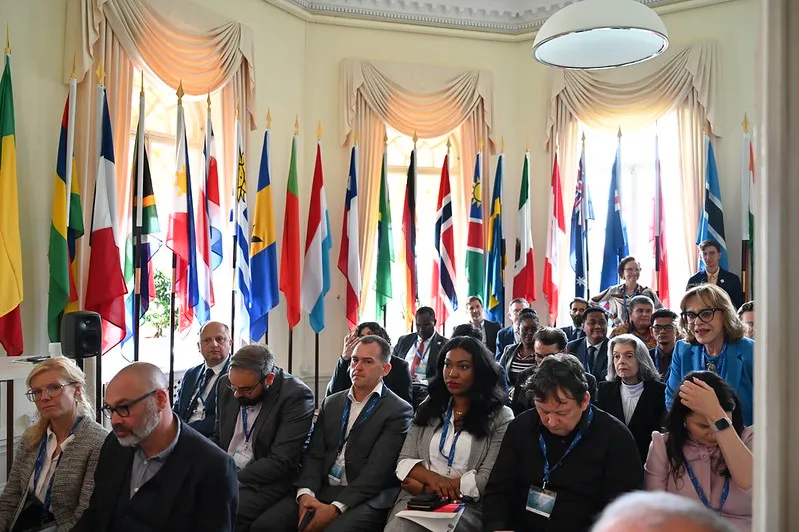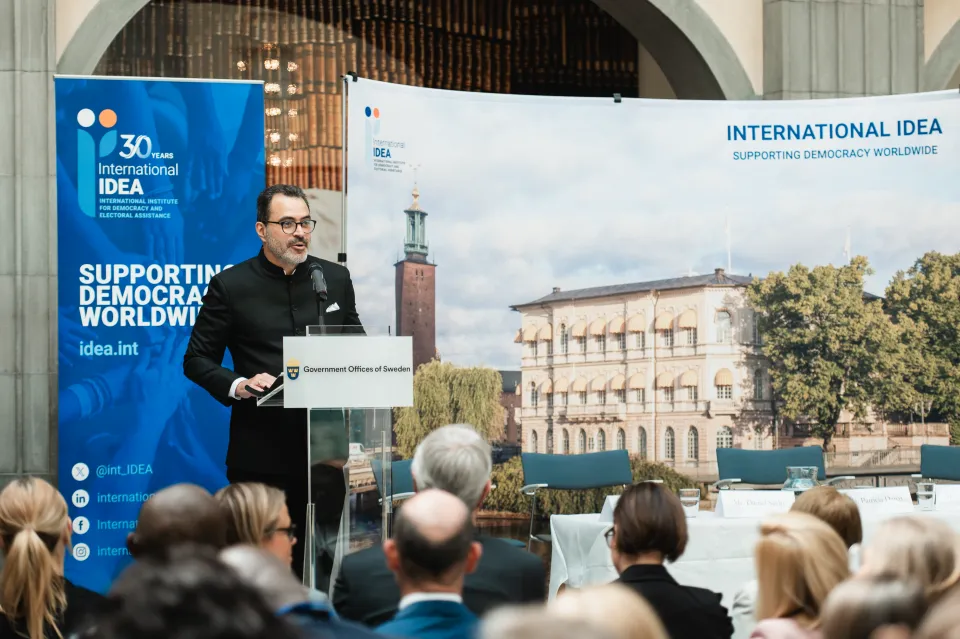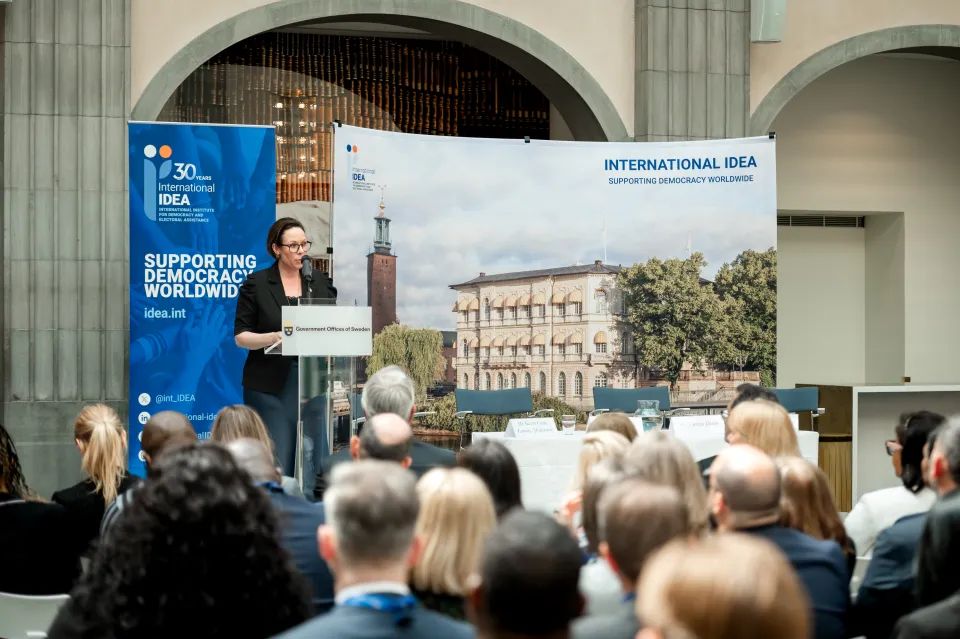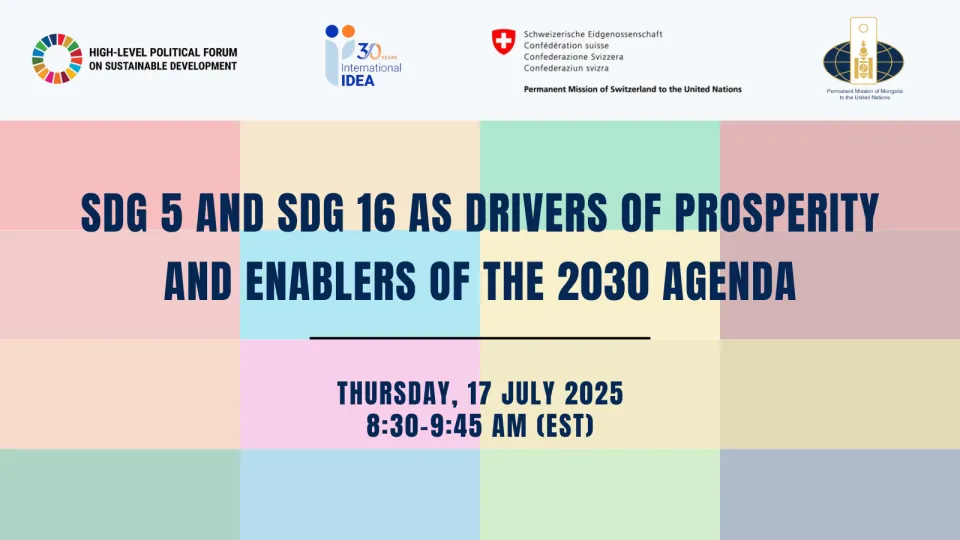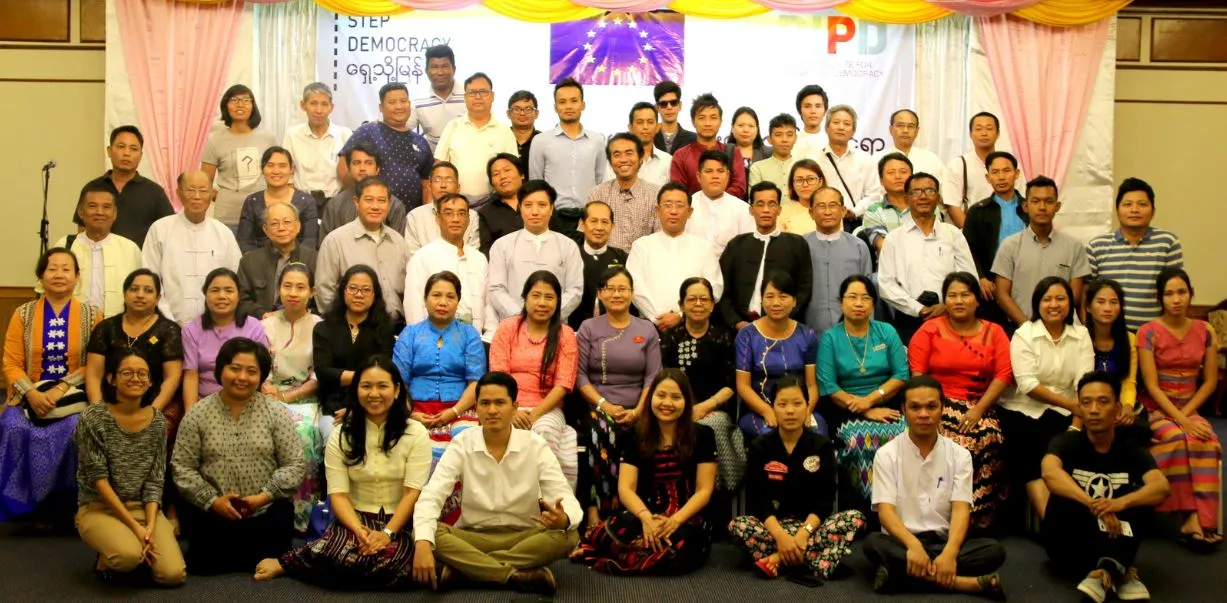
Being credible, transparent and democratic are the basic standards of elections. Myanmar successfully held general elections in 2015 and by-elections in 2017, and attention is now turning to elections for municipal representatives across the country. At the moment, the country’s system for municipal elections is quite different from international standards—even universal suffrage is not practiced for the voting. Therefore, in order for these elections to meet the same standards of those held at the national level, work is still needed.
Recently, there have been calls for a reform of the legal framework governing municipal elections, resulting in an opportunity to change the way these elections are administered. To support efforts to strengthen local democracy, the EU-funded STEP Democracy Programme working with the government and CSOs in Yangon, Sagaing, Shan State and Kachin State.
In Yangon
Yangon City plans to hold its first municipal election with universal suffrage this year. However, since the municipal electoral legal framework has not been updated since the colonial period, the STEP Democracy Programme organized a workshop in October 2017 for the Yangon City Development Committee (YCDC). The workshop presented international good practice and followed up with technical support in order for the YCDC to draft informed changes to the legal framework.
After releasing the proposal for amendment of the municipal law currently under discussion in the Yangon Regional Parliament, on 19 February 2018, STEP Democracy team was invited by the Yangon Regional Parliament to make presentations on the democratic municipal elections around the world. Following this presentation, STEP Democracy Programme’s partners: Danish Institute for Parties and Democracy (DIPD) and Democracy Reporting International (DRI) organized the "Multi-stakeholder workshop on Municipal Elections Law of Yangon City" in collaboration with the CSOs Coalition for Municipal Law. The workshop gave the participants a space to discuss the specific chapters of the newly reformed draft version of the municipal framework, and share their opinions on it. The culmination of the efforts to support the legal reform and the suggestions originating from this workshop were submitted to the parliament for further consideration.
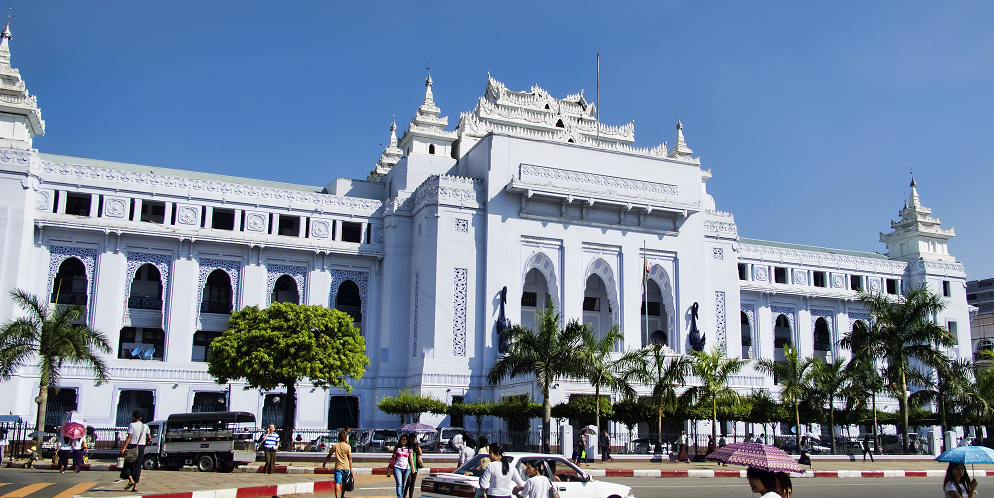
As Yangon is replacing the head-of-household voting system with universal suffrage for all Yangon citizens above the age of 18 in the upcoming municipal elections, these positive changes will need to be reflected in an updated voter list—currently at the forefront of consideration for the YCDC. In order to assess various systems and methods for obtaining comprehensive lists, the YCDC is looking to international good practice including in the use of biometric voter registration. Designed to support such discussions, International IDEA’s STEP team organized a one-day workshop on voter biometrics with the YCDC, members of the regional Hlutaw and representatives from the General Administration Department (GAD) and International IDEA’s in-house expert on election technologies, Peter Wolf. Topics discussed included the different kinds of technologies available, their usage around the world and the opportunities and challenges associated with each system. One of the more exciting examples are from Somaliland where they successfully have used iris scans to register voters.
Although it is unusual for biometric voter registration to be introduced at the municipal level before the national one, using voter biometrics in a future Yangon municipal election could present an opportunity to pilot such technologies in Myanmar. In regards to the future, Chief Minister U Phyo Min Thein said in his opening speech that possibly introducing voter biometrics in Myanmar is a strategic, long term project, and hopefully will benefit the whole country, not only Yangon City.
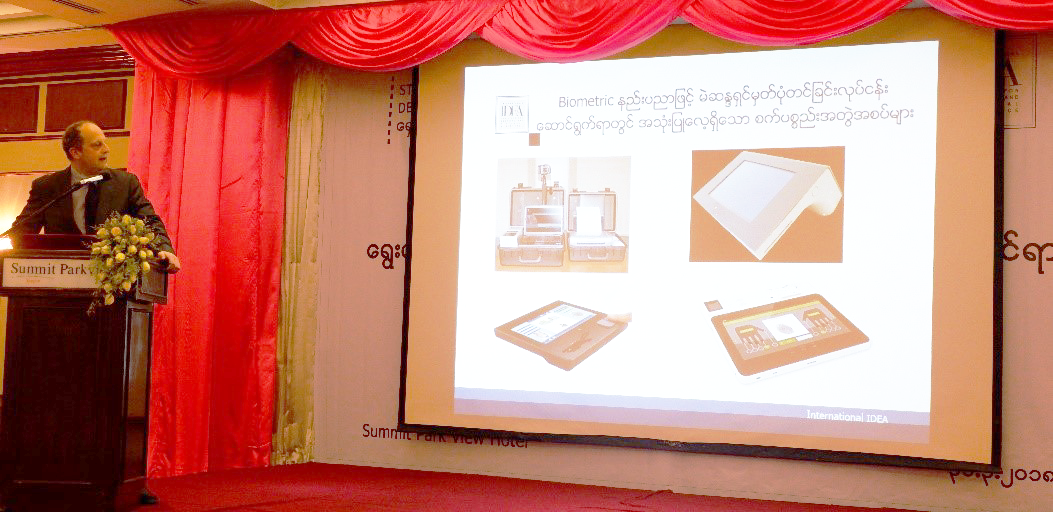
biometrics technology. (Photo credit: Hsu Mon Aung)
In States and Regions
In order to ensure that municipal elections scheduled across the country have a robust legal framework, between October 2017 and March 2018, DIPD and DRI together with the New Myanmar Foundation held a series of three workshops on municipal election reform in different areas of Shan State: Taunggyi (Southern Shan), Lashio (Northern Shan), and Kengtung (Eastern Shan). The workshops incorporated the increasing momentum for reforms based on the opposition parties in the Shan State Assembly requesting revised laws and by laws on municipal elections in Shan State. During the three dialogues, political party leaders and civil society groups learned about the framework for municipal elections in Shan State, as well as applicable international standards for municipal elections. The three events also provided stakeholders with the opportunity to discuss reform options in Shan State and resulted in a summary paper that will be discussed with the State Hluttaw in March.
Municipal Elections Legal reform Workshop in Kyeng Tung. (Photo credit:- DIPD)
Likewise, STEP Democracy programme also organized the workshops in Sagaing Region and Kachin State. These dialogues provided a key opening for those present—including civil society organizations, political parties, MPs from regional parliaments and representatives from regional municipal departments—to contribute to the ongoing process of reforming their municipal election laws.
The current situation of local governments and the challenges of developing democratic municipal elections laws, as well as by-laws and regulations, also formed key components of the dialogue sessions with conclusions from the sessions to be submitted to the respective parliaments for further discussion. In order to have a more comprehensive understanding of the electoral process at the sub-national level, the participants discussed about the roles of government, regional parliament, municipal committee members, political parties and the election management body.
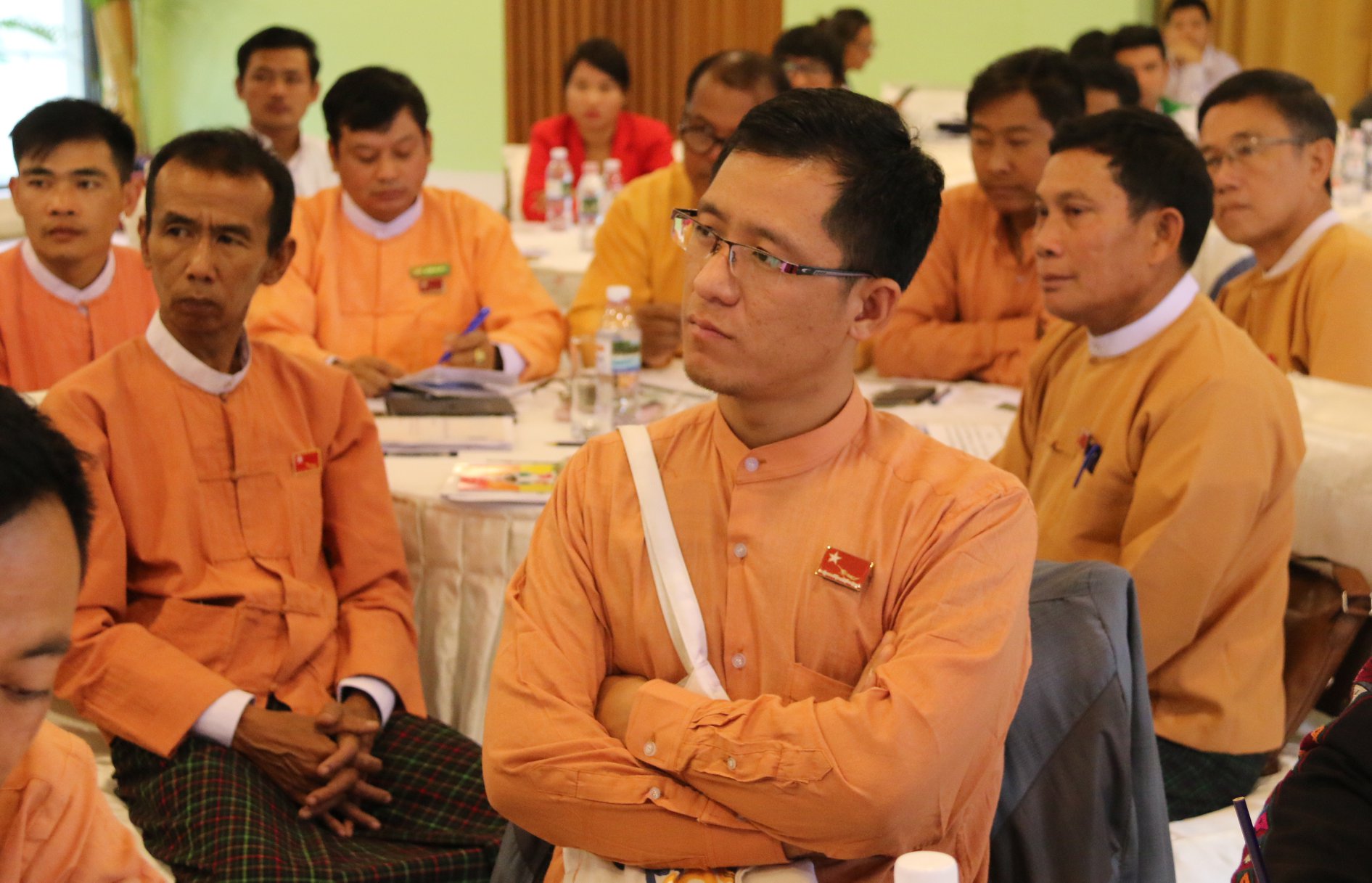
on the Shan Municipal Election Law. (Photo credit: DIPD)
All of the workshops and dialogues on municipal level elections held by the STEP Democracy Programme have brought changes to the legal framework and have given related stakeholders the opportunity to get involved in the reform process. U Nay Win, Kachin State’s Municipal Minister, who attended one of the workshops commented, “We welcome this kind of technical consultation workshop in Kachin State because it provides much support when developing the regional municipal law into the one with democratic standards”.
Likewise, the representative from PaO Self-Administrative Area who joined the workshop conducted in Shan State said, “Now we know the strengths and weaknesses of Shan Municipal Laws and regulations, and we’ve got the clear understanding that for self-administrative areas, by-laws can be developed on our own initiative”.
STEP Democracy Programme works with the government officials, the representatives from state/regional parliaments, political parties, and civil society organizations to support the reform and development of municipal legal framework which in turn could bring up the first democratic municipal elections in accordance with the international standards across the country.

